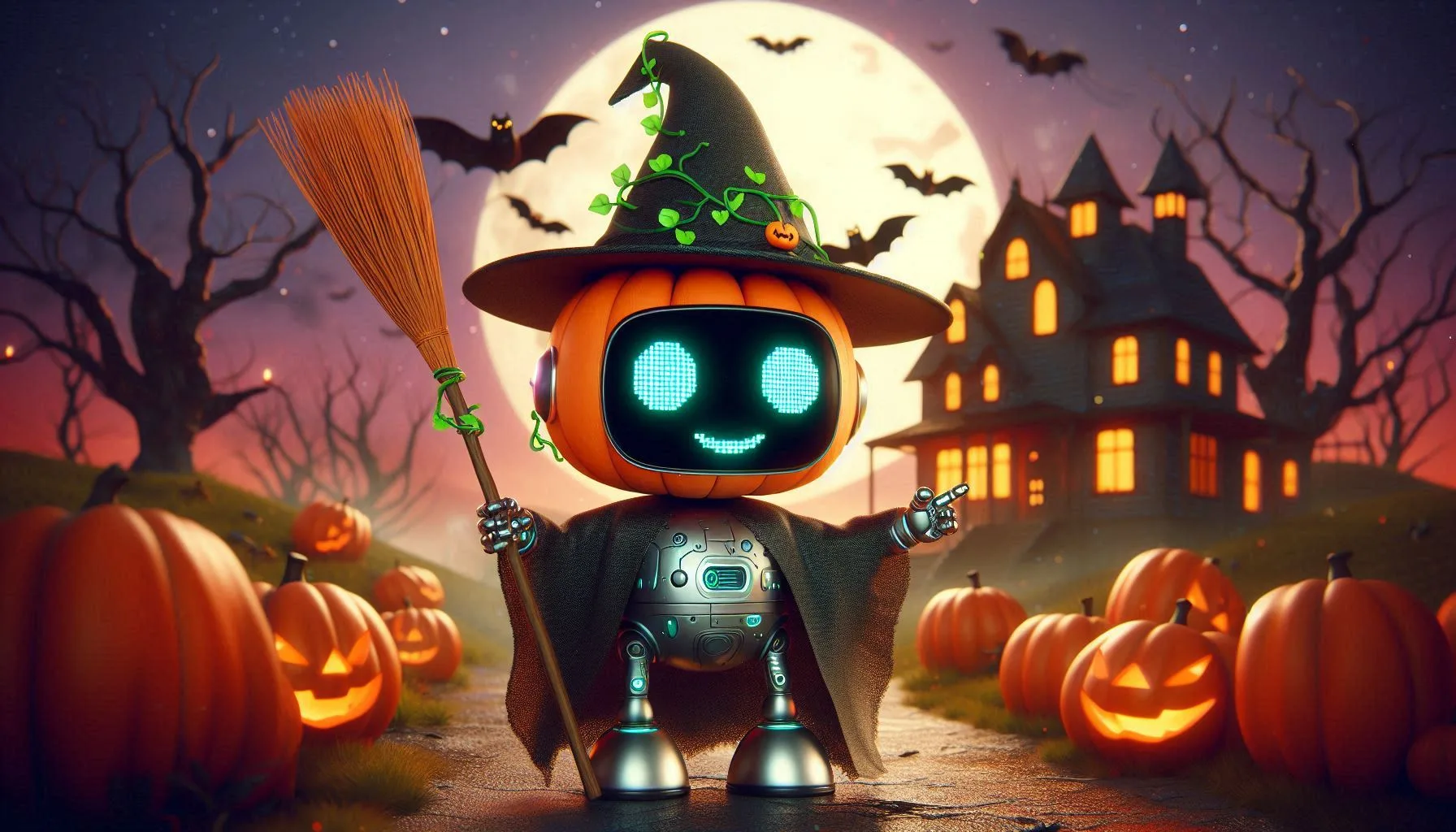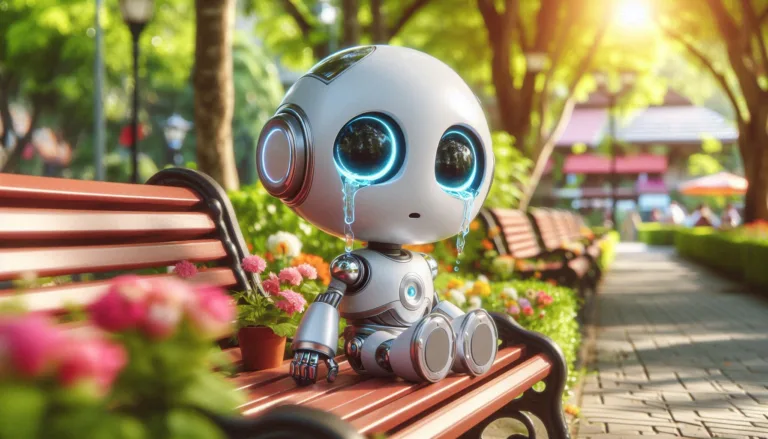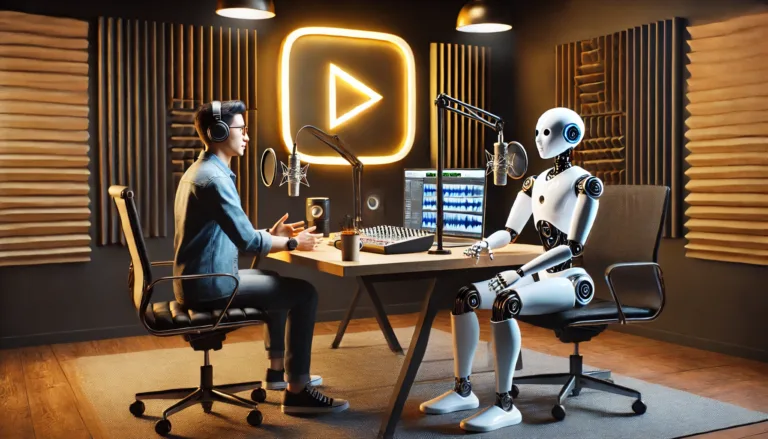Happy Halloween!🥳 As the leaves turn and the days grow shorter, we find ourselves surrounded by the festive spirit of Halloween. It’s a time for costumes, spooky stories, and, of course, examining our fears. This year, let’s delve into a different kind of monster: artificial intelligence. Is AI truly a monster, or is it just misunderstood? Join me as we explore the depths of this technological creature, unraveling its nature, capabilities, and the fears it inspires.
Introduction to AI: The Beast We Created
Artificial intelligence has evolved dramatically over the past few decades. From simple algorithms designed to perform specific tasks to complex systems that can learn and adapt, AI has become an integral part of our lives. Yet, with great power comes great responsibility, and the question arises: are we unleashing a monster upon the world?
The Origins of AI
To understand the current landscape of AI, we must first explore its origins. The concept of machines that can think dates back to ancient history, but the formal study of artificial intelligence began in the mid-20th century. Pioneers like Alan Turing and John McCarthy laid the groundwork for what would become a booming field of research.
In 1956, the Dartmouth Conference marked a pivotal moment in AI history, where researchers gathered to discuss the potential of machines to simulate human intelligence. However, the early days were fraught with challenges, and progress was slow.
The Rise of Machine Learning
The 21st century witnessed a resurgence in AI research, driven by advancements in machine learning and the availability of vast amounts of data. Today, we see AI in various applications, from virtual assistants like Siri and Alexa to self-driving cars and advanced data analytics.
The Dual Nature of AI: Tool or Threat?
AI can be seen as a double-edged sword. On one hand, it offers unprecedented capabilities; on the other hand, it raises significant ethical concerns. Let’s explore both sides of this argument.
The Positive Side: AI as a Beneficial Tool
- Enhancing Productivity: AI technologies automate mundane tasks, allowing humans to focus on more creative and strategic endeavors. Businesses can leverage AI for data analysis, customer service, and process optimization, resulting in increased efficiency.
- Healthcare Innovations: AI is revolutionizing healthcare with applications in diagnostics, treatment recommendations, and personalized medicine. Algorithms can analyze medical images more accurately than humans, leading to earlier detection of diseases.
- Environmental Monitoring: AI plays a crucial role in addressing environmental challenges. It aids in climate modeling, predicting natural disasters, and optimizing resource management.
- Advancements in Education: Personalized learning experiences driven by AI adapt to individual student needs, enhancing educational outcomes.
The Dark Side: AI as a Potential Threat
- Job Displacement: The rise of AI automation poses a threat to traditional job markets. As machines take over tasks previously performed by humans, many fear widespread unemployment.
- Bias and Discrimination: AI systems can perpetuate biases present in their training data, leading to unfair outcomes in areas like hiring and law enforcement. This raises concerns about accountability and transparency.
- Privacy Concerns: The use of AI in surveillance and data collection raises significant privacy issues. As we increasingly rely on smart devices, our personal information becomes vulnerable to misuse.
- Autonomous Weapons: The development of AI-powered weapons systems raises ethical dilemmas about accountability in warfare. The potential for misuse or unintended consequences is a significant concern.
Is AI a Monster? The Fear Factor
The term “monster” evokes fear, often rooted in misunderstanding. So, what fuels our fears of AI?
Fear of the Unknown
Humans have always feared what they do not understand. AI’s rapid evolution can be daunting, especially when its capabilities surpass our comprehension. Science fiction has further fueled these fears, portraying AI as malevolent entities bent on destruction.
Loss of Control
As AI systems become more autonomous, the fear of losing control is palpable. Will we create machines that operate independently, making decisions without human oversight? This question lies at the heart of many ethical discussions surrounding AI development.
The Rise of AI Superintelligence
The concept of superintelligent AI—a machine that surpasses human intelligence—raises existential questions. If an AI system becomes more intelligent than its creators, can we ensure it acts in our best interests? The thought of a superintelligent AI, capable of outsmarting humanity, is enough to send shivers down the spine.
Understanding AI: Education and Awareness
To combat these fears, we must educate ourselves about AI. Knowledge is power, and understanding the technology can demystify its nature.
The Importance of Ethical AI Development
Developers and researchers must prioritize ethical considerations in AI development. Establishing guidelines that promote transparency, fairness, and accountability is crucial to ensuring AI serves humanity positively.
The Role of Policy and Regulation
Governments and organizations must collaborate to create policies that govern AI use. By implementing regulations that address ethical concerns, we can mitigate potential risks and harness AI’s benefits.
Halloween: A Time for Reflection
As we celebrate Halloween, it’s essential to reflect on the monster we’ve created in AI. Rather than viewing it solely as a threat, we should consider its potential to enhance our lives.
Embracing the Positive Aspects of AI
This Halloween, let’s celebrate the positive contributions of AI. From innovations in healthcare to solutions for climate change, AI has the potential to be a force for good.
A Call for Responsible AI Use
As we navigate this new landscape, a collective effort toward responsible AI use is crucial. Each of us has a role to play in shaping the future of technology, ensuring it aligns with our values.
Conclusion: Is AI Really a Monster?
In conclusion, AI is not inherently a monster; rather, it is a reflection of our intentions and actions. It can be a powerful ally or a potential threat, depending on how we choose to wield it. As we celebrate Halloween, let’s embrace the spirit of inquiry and reflection.
Happy Halloween! May your night be filled with creativity, joy, and a thoughtful exploration of the wonders and challenges posed by artificial intelligence. Let’s commit to fostering a future where AI serves as a tool for progress, innovation, and human flourishing.
This article provides an in-depth examination of AI, exploring its nature, potential, and the fears it inspires. By emphasizing education, responsible use, and ethical considerations, we can ensure that AI becomes a beneficial part of our lives rather than a monstrous threat. As you enjoy this Halloween, take a moment to reflect on the possibilities that lie ahead with AI, embracing both the light and the shadows it casts.




